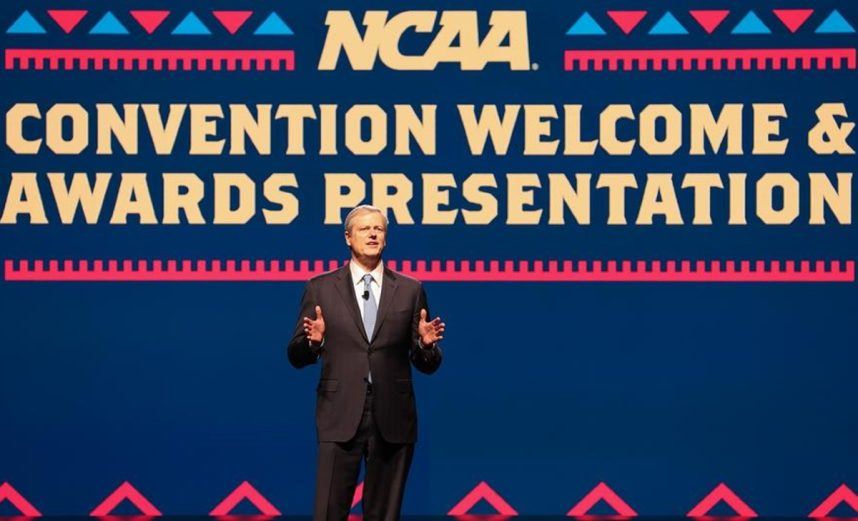Posted on: January 12, 2024, 12:14h.
Last updated on: January 12, 2024, 12:14h.
NCAA President Charlie Baker addressed the matter of protecting student-athletes from undue influences of sports betting during his “State of College Sports” address this week at the NCAA Convention in Phoenix.

Despite sports betting legalization across nearly 40 states, Baker acknowledges the benefits while emphasizing the necessity for ongoing player protections. He stressed that sports betting is a growing concern, especially within campus environments.
“Sports betting is basically everywhere, especially on campuses. And the harm it can cause is real,” stated Baker, emphasizing the seriousness of the issue.
Baker disclosed that the NCAA and the NFL are collaborating to better educate coaches and student-athletes about the challenges posed by sports betting and are working to ensure states have adequate laws in place to protect athletes.
Online Abuse in Focus
The NCAA has recently contracted the Signify Group to study, detect, and respond to online abuse and threats, reflecting the organization’s commitment to college athlete safety and well-being. Baker added, “This is a first-of-its-kind project in college sports focusing on online abuse and threats.”
A recent NCAA poll of campus administrators found that 10% of Division I respondents said they were aware of student-athletes being harassed online or in person by individuals with sports betting interests.
Tennis’ global governing organizations announced a similar partnership with Threat Matrix in December to combat rogue betting motives that seek to influence athletes.
Sports Betting Increases Engagement
In contrast, Baker highlighted the positive implications of sports betting, pointing out the exponential growth in fan engagement and metrics showing over a million new followers and four billion impressions gained by the NCAA across social platforms in 2023.
Moreover, the increased exposure has benefited women’s sports, notably women’s basketball and volleyball, with the promise of more significant revenue distribution units for teams participating in March Madness in the near future.


